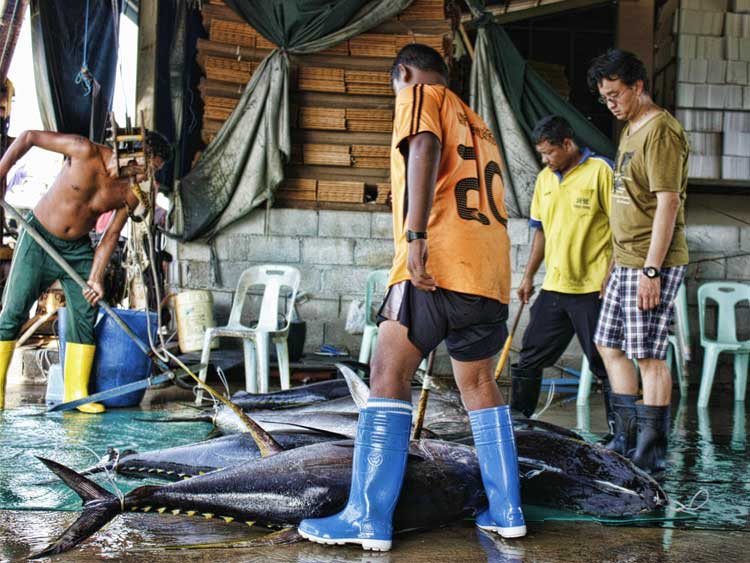Anfaco insists on excluding Thai tuna from EU-Thailand FTA

FIS | October 16, 2013
Anfaco insists on excluding Thai tuna from EU-Thailand FTA
The National Association of Manufacturers of Canned Fish and Shellfish (Anfaco Cecopesca) is to once again ask the authorities of the European Union (EU) for the exclusion of Thai tuna from the free trade agreement that the European bloc is negotiating with Thailand.
On Wednesday the general secretary of Anfaco Cecopesca and president of Eurothon, Juan Manuel Vieites, is to meet with Joao Aguiar, the chief negotiator of the European Commission (EC) for such bilateral trade agreement.
Vieites will argue in his request that the tuna industry in that Asian country is the main competitor of Community fishermen of that resource.
He will also express to Aguiar the concern that to the European industry supposes a possible tariff exemption and the abolition of the rules of origin for the companies in Thailand.
Anfaco argues that the free access of canned and tuna products from Thailand to the European market can seriously affect the future of the sector in Galicia, Spain and Europe.
"Thailand is a highly competitive country in the canned and processed tuna sector as it is shown in the production and foreign trade data, as it is the main world producer and exporter of canned and processed tuna," stated Anfaco in a press release.
According to the data presented by the Spanish entrepreneurship, in 2011 Thailand exported 91,357 tonnes of canned and processed tuna to the EU, that is to say, 19 per cent more than during the period between 2007 and 2011.
In late September, and in order to protect national canned products, the Committee on Agriculture, Food and Environment of the Congress of Spain unanimously passed an official statement in which it requested the EU to exclude the canning sector and processed tuna from the free trade agreement being negotiated with Thailand.
This agreement will lead to tariffs on fish products, which could harm the processing sector, especially the one that is installed in highly dependent zones.





